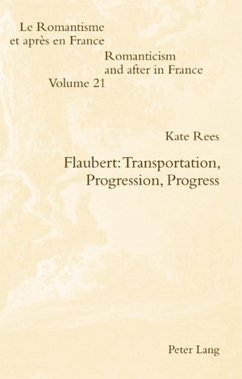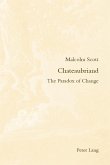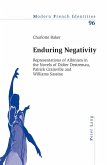A belief in progress tells us something about the way a society views itself. Progress speaks of confidence, optimism and dynamism. It assures us of pattern and structure. In the nineteenth century, as the Christian model of development is increasingly challenged and as geological findings expand understanding of history, so progress emerges from the Enlightenment as an ever more acute subject for debate. This book addresses the theme of progress and patterns of progression in the work of Flaubert. Through close textual analysis of his works and particular scrutiny of his narrative structures, this book argues that Flaubert's position in the mid-nineteenth century situates his work at an intriguing historical crossroads, between Romantic faith in progress and assertions of Decadent decline. Flaubert's response to progress is rich and complicated, offering stimulating views of momentum and perfectibility.
In this study, actual progression is seen as a metaphor for understanding Flaubert's attitude to historical progress. Each chapter focuses on a particular vehicle or pattern of movement, analysing journeys undertaken by characters in Flaubert's texts as models of disrupted, non-linear progression which provide a counter-current to contemporary ideologies of progress. A closing chapter examines connections between Flaubert and Huysmans, investigating the response to progress in later nineteenth-century literature.
In this study, actual progression is seen as a metaphor for understanding Flaubert's attitude to historical progress. Each chapter focuses on a particular vehicle or pattern of movement, analysing journeys undertaken by characters in Flaubert's texts as models of disrupted, non-linear progression which provide a counter-current to contemporary ideologies of progress. A closing chapter examines connections between Flaubert and Huysmans, investigating the response to progress in later nineteenth-century literature.








